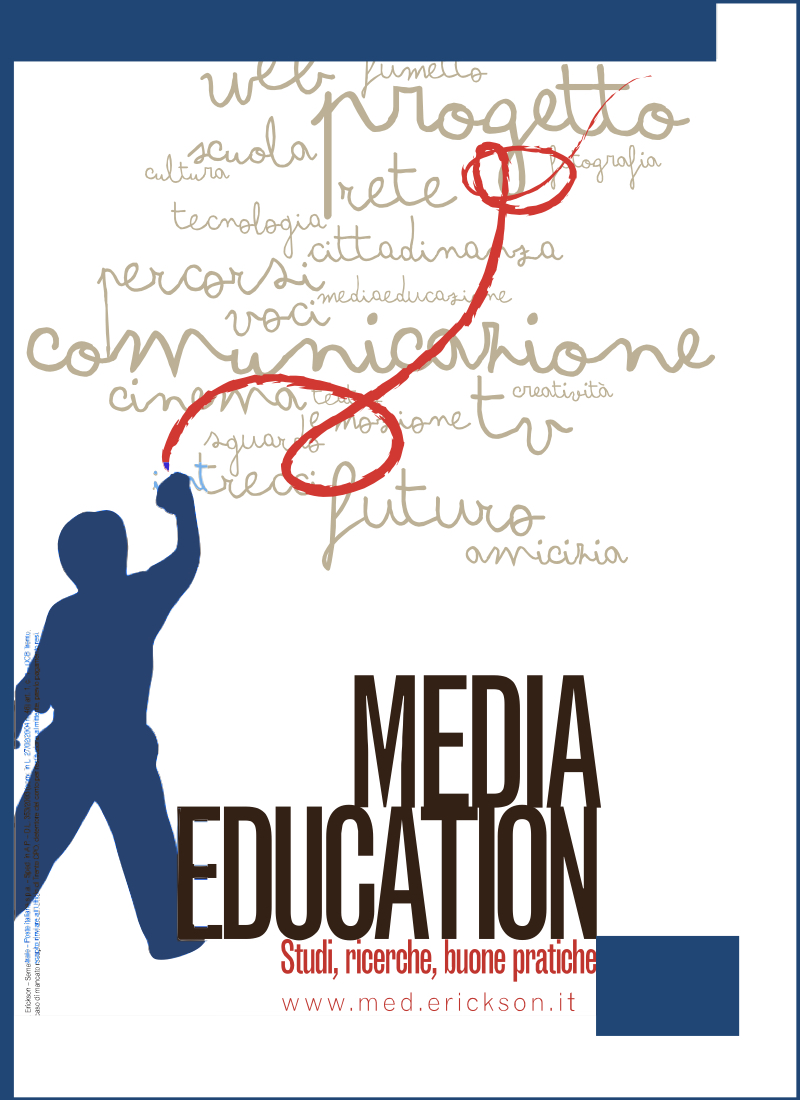AFFRONTARE IL SOVRA-UTILIZZO DELLO SMARTPHONE ATTRAVERSO LA MEDIA EDUCATION. UN ESPERIMENTO CONTROLLATO
Published 2020-05-05
Keywords
- Sovrautilizzo dello smartphone, uso problematico dello smartphone, dipendenza da smartphone, digital media education, esperimento randomizzato, boosting, scuola superiore,
- Smartphone overuse, problematic smartphone use, smartphone addiction, digital media education, randomized control trial, boosting, high school
Abstract
I media digitali sono ormai diventati parte integrante della vita quotidiana degli adolescenti, moltiplicando le loro opportunità di acceso alla rete in totale autonomia. Tuttavia, l’utilizzo di queste risorse senza limitazioni ha portato all’emergere di diversi effetti collaterali fra i più giovani, soprattutto riguardo il troppo tempo speso online e l’incapacità di fare fronte ai fenomeni di sovraesposizione informativa e comunicativa. In questo articolo viene discusso come il problema del «sovrautilizzo» sia stato affrontato all’interno del progetto «Benessere Digitale – Scuole», un intervento formativo di educazione ai media volto a formare gli insegnanti all’utilizzo consapevole e produttivo dei media, promosso dall’Università di Milano-Bicocca in collaborazione con Fastweb S.p.a. L’efficacia dell’intervento è stata testata attraverso un esperimento controllato che ha coinvolto 18 scuole secondarie di II grado e più di 3.600 studenti al grado 10 di istruzione. Il modulo analizzato in questo articolo si focalizza sulla «gestione del tempo e dell’attenzione» e prevede che gli studenti riflettano sulle loro abitudini basandosi su dati quantitativi ottenuti da un’app di monitoraggio delle attività online (RescueTime). Il paper discute le tecniche cognitive e educative usate nel modulo. I risultati confermano che l’intervento ha contribuito a ridurre significativamente il sovrautilizzo dello smartphone e le percezioni di uso problematico fra i partecipanti.
In the last decade, digital media have increasingly become part of adolescents’ daily lives, broadening their opportunities to access the internet in complete independence. However, the diffusion of these always-on devices has led to the emergence of unexpected side effects, related to media overuse and information and communication overflow. This article describes how the «Digital Wellbeing-Schools» project, a media education initiative promoted by the University of Milano-Bicocca in collaboration with Fastweb S.p.A., tackled this issue. The project involved more than 3,600 students at grade 10 from 18 upper secondary schools in the Milano and Brianza area. Indeed, one of four modules of the project training package focused on «time and attention management» in smartphone usage. Students were asked to reflect on their habits on the basis of quantitative data obtained using a self-monitoring app (RescueTime). The paper discusses the cognitive and educational techniques used in this module in the light of the literature. The effectiveness of the whole intervention was then tested through a randomized controlled trial. The results experimentally confirm that the activities carried out in this part of the project significantly contributed to a reduction in smartphone over-consumption and problematic use among treated participants compared with controls.

